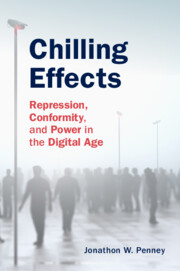Refine search
Actions for selected content:
471 results
Chapter 4 - Spheres, Capabilities, and Thresholds
-
- Book:
- A New Theory of Sufficientarian Justice
- Published online:
- 12 December 2025
- Print publication:
- 29 January 2026, pp 98-129
-
- Chapter
- Export citation
Chapter 7 - Rational Powers and the ‘Fact of Reason’
-
-
- Book:
- The Aristotelian Kant
- Published online:
- 15 December 2025
- Print publication:
- 22 January 2026, pp 180-206
-
- Chapter
- Export citation
Chapter 1 - Kant on Moral Universality and the Normative Foundations of Right
- from Part I - Law and Morality: Derivation or Separation?
-
-
- Book:
- Law and Morality in Kant
- Published online:
- 16 December 2025
- Print publication:
- 22 January 2026, pp 17-35
-
- Chapter
-
- You have access
- Open access
- HTML
- Export citation
Chapter 14 - Morality, Right, and Responsibility
- from Part V - Law and Morality in Kant’s Political Theory
-
-
- Book:
- Law and Morality in Kant
- Published online:
- 16 December 2025
- Print publication:
- 22 January 2026, pp 285-306
-
- Chapter
-
- You have access
- Open access
- HTML
- Export citation
Sixth Collection
- from Letters for the Advancement of Humanity
-
- Book:
- Johann Gottfried Herder: Letters for the Advancement of Humanity
- Published online:
- 13 December 2025
- Print publication:
- 22 January 2026, pp 267-324
-
- Chapter
- Export citation
Chapter 13 - Independence and Kant’s Positive Conception of Freedom
- from Part V - Law and Morality in Kant’s Political Theory
-
-
- Book:
- Law and Morality in Kant
- Published online:
- 16 December 2025
- Print publication:
- 22 January 2026, pp 262-284
-
- Chapter
-
- You have access
- Open access
- HTML
- Export citation
Chapter 10 - Kant on Habit and Time
-
-
- Book:
- The Aristotelian Kant
- Published online:
- 15 December 2025
- Print publication:
- 22 January 2026, pp 246-271
-
- Chapter
- Export citation

Johann Gottfried Herder: Letters for the Advancement of Humanity
-
- Published online:
- 13 December 2025
- Print publication:
- 22 January 2026
The Right to Freedom
-
- Journal:
- Kantian Review , First View
- Published online by Cambridge University Press:
- 11 December 2025, pp. 1-21
-
- Article
-
- You have access
- Open access
- HTML
- Export citation
Freedom and Politics in Shakespeare’s Cymbeline
-
- Journal:
- The Review of Politics , First View
- Published online by Cambridge University Press:
- 10 December 2025, pp. 1-19
-
- Article
-
- You have access
- Open access
- HTML
- Export citation
Freedom, Democracy, and Economic Rights: A Kantian View
-
- Journal:
- Canadian Journal of Philosophy , FirstView
- Published online by Cambridge University Press:
- 05 December 2025, pp. 1-15
-
- Article
-
- You have access
- Open access
- HTML
- Export citation
Freedom and the Invisible Hand: Hussain on the Judgment-Bypassing Character of the Market
-
- Journal:
- Canadian Journal of Philosophy , FirstView
- Published online by Cambridge University Press:
- 24 November 2025, pp. 1-15
-
- Article
-
- You have access
- Open access
- HTML
- Export citation
Patterns, Prices, and Powers: Hussain on Market Governance
-
- Journal:
- Canadian Journal of Philosophy , FirstView
- Published online by Cambridge University Press:
- 24 November 2025, pp. 1-15
-
- Article
-
- You have access
- Open access
- HTML
- Export citation

Chilling Effects
- Repression, Conformity, and Power in the Digital Age
-
- Published online:
- 20 November 2025
- Print publication:
- 20 November 2025

Afro-Mexican Lives in the Long Nineteenth Century
- Slavery, Freedom, and the Writing of History
-
- Published online:
- 20 November 2025
- Print publication:
- 04 December 2025
Chapter 5 - Modernism and the Chimera of Modernity in African Letters
- from Part I - Decolonization Currents
-
-
- Book:
- African Literature in Transition
- Published online:
- 07 November 2025
- Print publication:
- 20 November 2025, pp 109-125
-
- Chapter
- Export citation
Freedom of Self-Expression
-
- Journal:
- Legal Theory , First View
- Published online by Cambridge University Press:
- 14 November 2025, pp. 1-21
-
- Article
- Export citation

Kant's Metaphysics of the Will
- Freedom, Reason, and the Moral Law
-
- Published online:
- 06 November 2025
- Print publication:
- 09 October 2025

Harriet Jacobs
-
- Published online:
- 31 October 2025
- Print publication:
- 20 November 2025
-
- Element
- Export citation
Introduction
-
- Book:
- Modern Moral Philosophy in the Nineteenth Century
- Published online:
- 15 November 2025
- Print publication:
- 30 October 2025, pp 1-8
-
- Chapter
- Export citation
